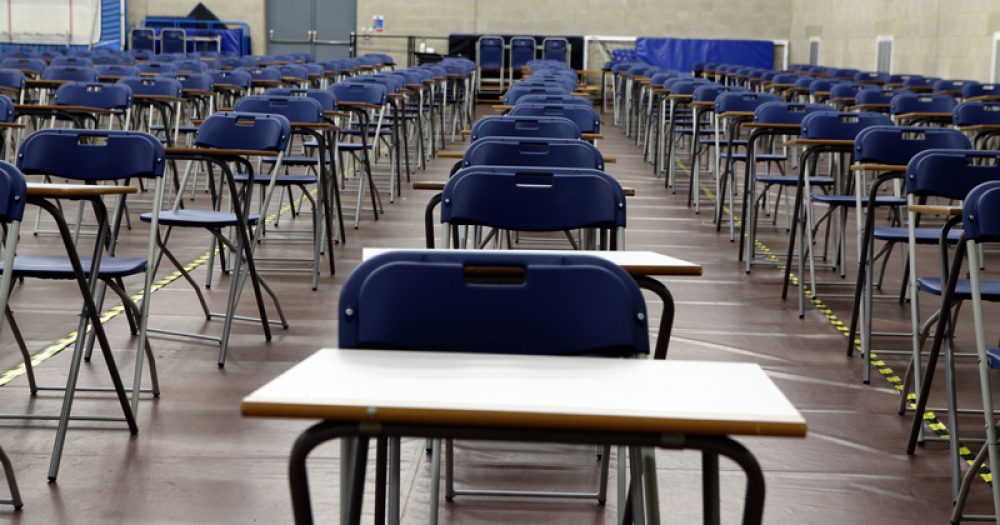An awards scheme for examiners should be created to entice more teachers to take on the “unattractive” job, a veteran examiner has suggested.
Roger Murphy, an emeritus professor at the University of Nottingham, has been an examiner for about 40 years, but says the role is more bother than it is worth.
He said as a result exam boards were struggling to recruit enough teachers for a job once seen as “very appealing”.
“Having been involved in exams for a long time I see now that most of what you read about examiners and marking is very negative,” he said. “You always hear about the cases where you get it wrong or a school gets bad results.”
A real upbeat approach would be to have some sort of awards and prizes for people who are very good
He suggested that incentives should be introduced. “A real upbeat approach would be to have some sort of awards and prizes for people who are very good.
“Being able to assess pupil work and tell them how they are doing against a recognised standard is a vital bit of the job and one that doesn’t get as much recognition as it should.”
Michael Turner, director general at The Joint Council for Qualifications, which represents all exam boards, said each year more than 50,000 examiners marked scripts and each year exam boards recruited enough examiners.
But Murphy said boards only reached recruitment numbers because they outsourced some marking to student teachers or people outside the profession who did not have the necessary expertise.
Velda Elliott, an associate professor of English at the University of Oxford, agreed and said that when teachers and academic examiners hit a higher tax bracket the incentive of extra pay was “not worth it”.
Examiners, on average, earn about £1,000 a year before tax. A-level marking pays the best at £5 a script while examiners mark “more for less” for other qualifications such as GCSEs.
“Being an examiner is very appealing as a young teacher because you get extra money,” Elliott said. “But when I became an academic and hit the 40 per cent tax bracket, I stopped marking because it makes you a lot less tolerant of any issues that come with it.”
Murphy also said the rise of academies had made examining “unattractive”.
“Some heads of academies are not encouraging their staff to do examining and they’re saying it is a low priority.”
Elliott agreed and said schools needed extra incentives to allow their teachers to be examiners, as some saw it as “taking time away from what they are being paid to do”.







The lack of examiners is a direct result of the increase in workload & pressure on teachers. When I started the summer term felt like an opportunity to take part in planning and CPD opportunities, now it’s stuffed full of assessments and evidencing.
I know many academy sponsors who actually are encouraging its teachers to engage in marking for examination boards. I am confused how the effect of academisation is deterring staff from being involved in the process…
I examined for a number of years, we used to have overnight meetings, here I could discuss face to face issues with mark schemes. this has now been replaced by tedious on screen standardisations, whilst this will have saved the exam board money it did not help me understand what exactly was required. It also wasted my time with errors etc. The final straw came when they joined the responsibility fee with the per script fee. This meant I would have had to mark more for less money. Pay the examiners fairly and allow them to do a good job by training them and things will improve.